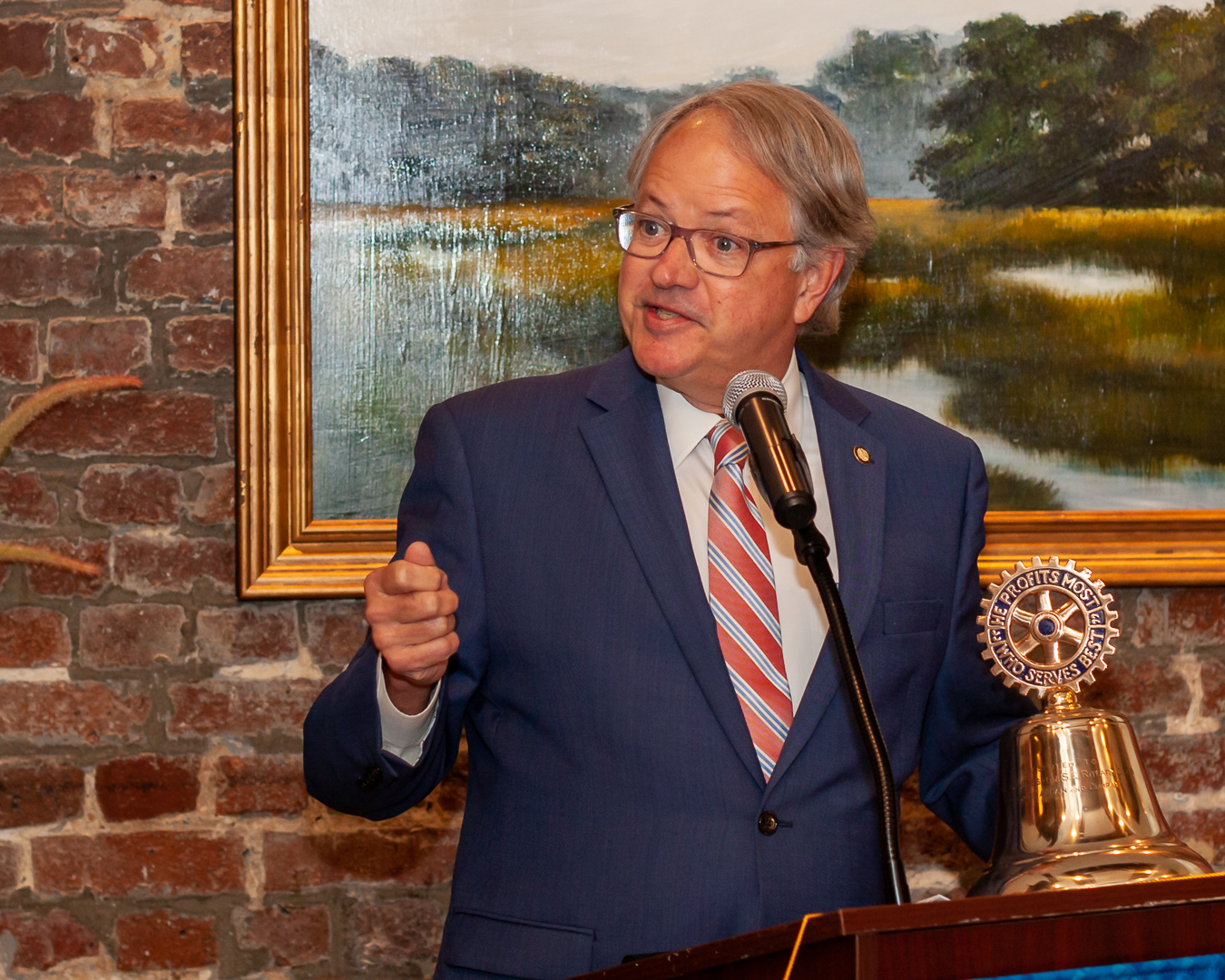The University of South Carolina; Where Business and Education Intersect
February 23, 2010: Harris Pastides, President of the University of South Carolina, addressed our club today, and shared with us the most recent updates from the University of South Carolina and his thoughts about where the institution is headed and how it effects leaders in business.
Just a year ago Pastides was quoted saying “it’s the best of times, it’s the worst of times” yesterday he laughed, saying “I don’t know why I said the best of times”. USC has experienced $75 million in cuts from state appropriations and there are more on the horizon, estimated to be another 20%. Reductions drop state funding to half of what it was just 20 months ago when Pastides became President, and only 10% of the entire budget is funded by the state. The University President quipped “in the beginning these institutions were state supported, then state assisted and soon they will just be state located”. The frustration is evident and real as the institution struggles with the best way to cope with diminishing funds, and there are multiple schools of thought on how to proceed.
Pastides addressed the South Carolina Assembly seeking a compromise of sorts, offering to keep tuition as low as possible (especially for state residents) in exchange for a commitment to increase funding to a level comparable with other southern, state supported schools, when the economy recovers. No promises have been made. That being said USC remains open, research is under way and in the presidents words “the student are our pillar”. Gamecocks raised $140,000 in a dance marathon for children’s health, and thousands of dollars for Haiti hosting a battle of the bands competition, in addition to spirit and character the average SAT score for admission into the University of South Carolina Honors College is 1420. The school was named #32 in Top Value Education by Kiplingers, and would have been closer to the top; the schools holding the first, second, and third position boast tuitions of less than half of USC’s and that is directly related to the large amount of state funds those institutions receive.
The circumstances above bring the University to a cross roads, even the trustees are divided on which way to proceed. Some believe that with less money from the state the school must do less. For example: if faculty cannot be replaced then fewer student should be admitted, another option increase tuition to offset the lack of state monies (calculations estimate that tuition would have to be increased 60% to make up the difference), or increase out of state admissions (leaving fewer spots for South Carolinians). The opposition says “don’t do that”, the University has been providing public education since 1805 before the states of New York or Massachusetts, yet we need more education. USC’s eight campuses will educate 43,400 people this year, 40% if in state students attend Carolina, but still, only 25% of adults in our state have a college degree. Pastides agrees with the second group, and has allocated $1,000,000 from athletics to academics these funds will be used to aid dedicated students in paying tuition that would otherwise be forced to withdraw.
Pastides will remain focused on the total student and the total education. A profitable work place starts with an educated work force.
Reported by Elizabeth Wooten Burwell, Keyway Committee


